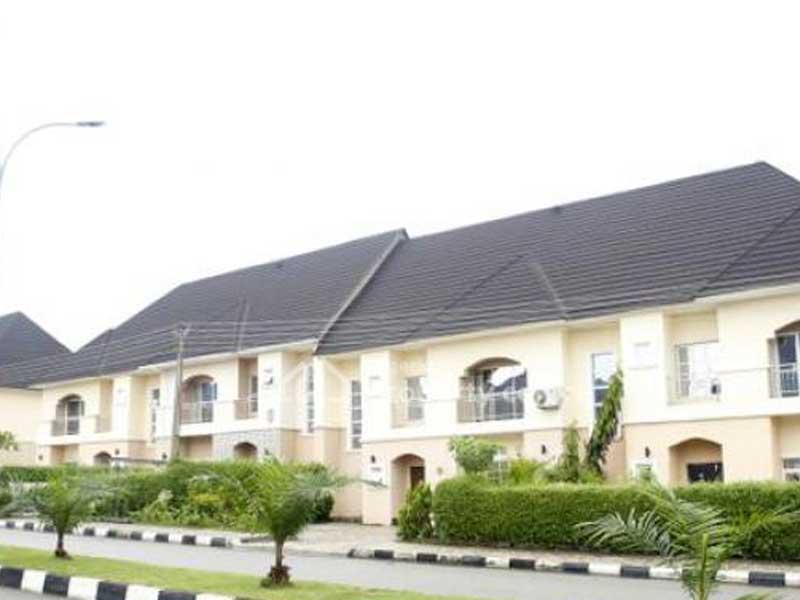- Â Urges expedited judicial process on mortgages
Ndubuisi Francis in Abuja
The Governor of the Central Bank of Nigeria (CBN), Mr. Godwin Emefiele, has called for an urgent action aimed at expediting the judicial process for adjudicating on mortgages as well as other commercial disputes, with a view to drastically speeding up the very slow growth in the housing finance sector.
In an address he delivered at a workshop for judicial officers in Abuja, Emefiele identified eight constraints to an effective housing delivery system in the country.
The constraints, he said, included the difficulties associated with the land tenure system as enshrined in the Land Use Act of 1978, the issue of affordability and the difficulties in delivering affordable housing to low and middle-income households
He added: “There is also the limited access to housing and mortgage financing. This problem is further exacerbated by a general lack of understanding of the mortgage concept, and the possible benefits (e.g. tax rebate) that may be enjoyed by a mortgagor in our environment.
“Another critical constraining factor is the difficulties in enforcing mortgage contracts and foreclosure on properties in Nigerian courts. This is somewhat attributable to court congestion and the resulting slow adjudication process which is a key deterrent to mortgage financing,†he said.
According to him, the slow bureaucratic procedures in land administration and the high cost of land registration and land titling have also led to a humongous backlog in the flow of land administration procedures.
“Also, the high rate of population growth seems to be contributing in some measure to the pressure on the housing sector. Nigeria’s population grows at an estimated annual growth rate of 2.44 per cent which considerably outstrips its housing supply. The unabating population of tenants over homeowners is the primary reason for the focus on this sector.
“In addition to rising population, the high rate of rural-to-urban migration exerts significant pressure on limited housing stock in those areas, often leading to immense pressure, and inability to comfortably meet mortgage lender approval criteria.
“The last but by no means the least is the high cost of construction. Several reasons account for this, including high cost of land acquisition and perfection, building materials, skilled labour and supporting infrastructure,†he said.
Emefiele noted that within the context of the Nigeria Housing Finance Programme (NHFP), a key deterrent to the growth of mortgage financing in Nigeria remains the slow and protracted adjudication process for the enforcement and recovery of mortgage loans provided to potential homeowners by financial institutions.
“In this respect, it is worthy of note that whether a mortgagee seeks to exercise its power of sale, foreclosure, right to appoint a receiver or institute an action for recovery of the mortgage loan, the lengthy judicial process inhibits the ability of financial institutions to enforce mortgages and recover mortgage loans.
‘Accordingly, there is need to take urgent action aimed at expediting the judicial process for adjudicating on mortgages as well as other commercial disputes, so as to drastically speed up the very slow growth in the housing finance sector,†he stated.
The CBN Governor pointed out that one of the modern-day determinants of development in any environment was the effective protection of property and contract rights, adding that this in itself requires a modest legal infrastructure embedding precise rules that are easily enforceable.
“Sadly, the 2016 World Bank Group Report on Ease of Doing Business ranks Nigeria 139th out of 190 countries in the area of Enforcement of Contracts. This ranking is partly due to the length of time and significant expenses involved in the litigation process.
“The poor ranking discourages both local and foreign investments including into the mortgage financing sector. This is because lenders have, over time, become wary of the delays and uncertainties which often characterize simple mortgage disputes such as a claim for repayment of mortgage loans, exercise of the power of sale, appointment of a receiver, foreclosure, to mention a few.
“I would like to commend several states of the federation that have undertaken reforms aimed at improving access to courts as well as a speedy disposal of disputes, including the reform of civil procedure rules, automation of courts, introduction of alternative dispute resolution mechanisms like mediation, conciliation and arbitration; as well as the designation of some courts in the Judicial divisions in some states as reserve courts for specific matters,†he added.



